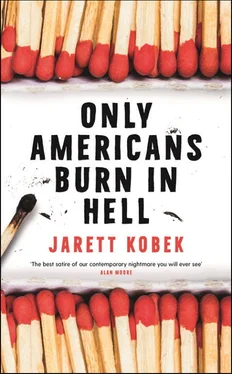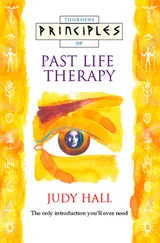As long as the appearance of that object was maintained, the vast majority of human beings would never notice any deviation from common expectations, and, in fact, people would go out of their way to ignore those deviations.
The most obvious place where this principle operated was within the publishing industry of the United States of America.
Despite decades of effort, and thousands of Internet thinkpieces about the inclusion of marginalized voices, publishing was a dirty business that had done nothing to alleviate a system of ghettoizing its authors based on their physical appearances and socio-economic points of origins.
The books of the publishing industry rested on a cheap shorthand, with each of its marketing demographics defined by the implicit prejudices of the American upper middle class.
And if you think that’s an exaggeration, ask yourself this: how many well-received books of Literary Fiction published over the last thirty years do you remember being written by a poor person?
In the unlikely event that a person was allowed to publish a book which spoke beyond the simple facts of their socio-economic origins, then the message of that book was ignored.
Consider The Women of Brewster Place by Gloria Naylor, a novel about several African-American women who all live in the same urban development.
The text explicitly states that the titular Brewster Place, the urban development itself, is a machine that manufactures the lives of its women.
The book is an exploration of the way by which the machine crafts, structures, and demolishes its product.
It’s a dark, mechanistic text about the nature of urban living, about the secret lines of power, and about the way that Twentieth-Century AD architecture created new perversions and desires.
Remember when J.G. Ballard, a white English colonial, wrote the exact same shit?
You thought it was genius!
You gave him his own adjective!
When Naylor wrote the same thing, no one even noticed.
But The Women of Brewster Place was authored by someone whose points of origin fulfilled the paltry expectations of America’s upper middle class, a group of people who wanted little more from Black women writers than triumph over individual adversity, folksy homespun wisdom, sexual suffering, and horrible deaths.
And before anyone suggests that this is revisionist thinking about Naylor, cramming some weird bullshit into her work, go and read 1996 .
Read 1996 and then try convincing yourself that Naylor wasn’t a writer obsessed with the world of secret persuaders.
And, hey!
Speaking of publishing, let’s talk turkey!
It’s inevitable that this book will draw comparisons to writings by the late Kurt Vonnegut, who was an American novelist from the Twentieth Century AD.
I couldn’t escape the comparisons with I Hate the Internet !
At least one question from the audience at every book event!
And I won’t escape them with this book!
Total theft from Breakfast of Champions !
Even down to Fairy Land!
Most of the comparisons between this book and the writings of the late Kurt Vonnegut will occur in cheap little reviews on Goodreads.com and Amazon.com, which are Internet websites owned by a guy named Jeff Bezos.
These websites are where the American readership makes sure that American authors know their fucking place, and further ensures American authors know that their place is the equivalent to that of a moon-faced kid being shoved into some mud by a bully.
“How do you like that mud, you little shit?” asks the American readership. “This is what happens when you try to do anything! Fucking eat it, you pig!”
“Mgjhasdhashfs fdasmmmppfkjjsad,” reply American authors, their pie-holes crushed into a mélange of star-rankings, facile two-sentence comparisons, and moronic assumptions about authorial motivation.
Quick!
Here’s how to murder a culture: create a system in which every fucking thing, no matter how small or tedious, is smothered in bullshit instant commentary and hot takes by the stupidest people on the planet.
Good luck.
You’re gonna need it.
But who the fuck are the dinosaurs reviewing books on websites?
Losers!
Who reads books?
Nobody!
Who uses a website?
Nobody!
It’s all smartphones now.
Here’s a text message that a well-known Hollywood screenwriter sent me, unbidden, on December 25th, 2017 AD, while I was trying to watch the 1981 AD film Christiane F. – Wir Kinder vom Bahnhof Zoo :

That shit is disgusting.
But it’s also brilliant, an entirely new kind of writing that’s unfathomable in its complexity and immediacy.
The screenwriter didn’t write it.
It comes from nowhere. It’s a chaintext that people were sending each other in the days before Christmas. This was how the world talked to itself.
And by any measurable standard, it’s much more interesting than reading a book.
Despite the notions thrown about whenever a prestigious novelist gives birth to another tedious narrative bound in paper, the actual function of novels in American society was very different than anyone liked to admit.
Yes, reader, you could shit in some high cotton and talk to your friends about how reading ennobled the human spirit, and how literature connected people to one another, and how the whole enterprise promoted a humanistic understanding of Life in Our Time.
But then, of course, you would be no different from the Xanax-addled Brooklynites who earn small amounts of money by writing crap articles critiquing the implicit racial and gender politics of television dramas about werewolves and vampires.
And, reader, you are many things.
Some good, some bad.
But you’re better than the children who pretend, for money, that they’re upset about the latest episode of Supernatural.
You’re not that kind of liar.
I can think of one reason why I can’t escape comparisons to Kurt Vonnegut.
And it ain’t because my work is so indebted to his own.
It’s because Vonnegut was the same as me: another con artist ripping off the French writer Louis-Ferdinand Céline.
A bunch of people have talked shit about Céline.
I don’t blame them!
Besides being one of the best writers of the Twentieth Century AD, he was also a rabid anti-Semite who collaborated with the Nazis.
But I can’t judge!
I too have collaborated with Nazis!
I was published by Penguin Random House!
But the real reason why I can’t escape the Vonnegut comparisons is not because our books are rip-offs of the same anti-Semite, but rather that the entire conception of the Serious Novel is a hideous stew of baked-in prejudices.
These prejudices are so omnipresent that they’re invisible.
Whenever someone writes a work of incandescent prose about privileged people whose artistic, cultural, and familial foibles result in a plot-and-character-driven catharsis, no one goes on Goodreads.com and accuses them of ripping off Henry James.
But they should!
All of that crap, all of the good writing, the well-structured paragraphs, the emphasis on plot, the unexpected quirks of prose, the pretend lives of pretend people which resolve into a reflection of Our Time and Our Selves!
It’s all technique!
Henry James was doing that shit before your parents were fertilized zygotes!
It’s older than old hat.
Ancient technology!
And that’s how we’ve defined the Serious Novel.
By pretending that technique from the Nineteenth Century AD can encompass the horror of the Twenty-First Century AD.
Читать дальше










![Brian Thompson - A Monkey Among Crocodiles - The Life, Loves and Lawsuits of Mrs Georgina Weldon – a disastrous Victorian [Text only]](/books/704922/brian-thompson-a-monkey-among-crocodiles-the-life-thumb.webp)


